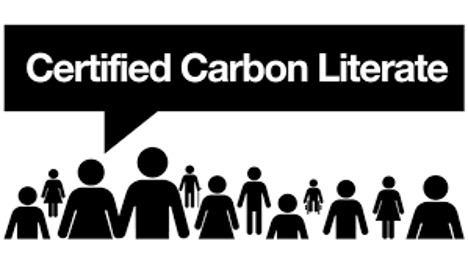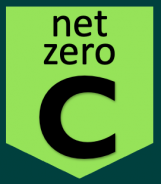
I’ve just embarked on a freelance career and am very grateful for the advice and support I’m getting from many colleagues. It was not really how I thought 2023 would pan out, but I am starting to get excited about the possibilities and freedom. I haven’t really done self-publicity before or even Twitter as me, so it’s all quite a challenge. At the suggestion of a supportive fellow consultant, I’m starting a blog called Green Musings and have found my first topic: Green credentials for museum and heritage freelancers.
Thinking about describing my work and credentials for the first time, I’ve been looking at how/if other do this, how/if potential clients ask about this area and workable solutions. I’m planning further blogs in this series looking in more detail about decarbonising your practice. No matter what our area of practice, I hope there is agreement that we should all work in a responsible, inclusive, ethical and environmentally responsible way. The corporate world has a shorthand- ESG- Environment, Social and Governance. Of course as freelancers, the G is less relevant. Increasingly, all suppliers will be asked to demonstrate their E and S credentials to prospective clients as those client organisations deliver on their E and S policies and procedures. I’m going to concentrate on Environmental credentials. There are 2 questions to start with: what are my environmental credentials and how best to communicate these to potential clients? Thinking about the second point first, might actually help crystallise your thoughts on the first. There are 2 main approaches, proactive or reactive. You could start form the beginning every time and write something new for each application you submit, answering the sometimes vague and generic questions that some organisations ask of all their suppliers e.g.
- How has your organisation created effective stewardship of the environment? Please provide evidence
- Give a description of (what) your organisation will bring over and above the requirements of the Specification. This could include areas such as: Protecting and improving the environment
- Provide organisational policies and practices which demonstrate a commitment to sustainable and ethical methods of working which consider their environmental impact.
So as the last point suggests having a policy or a statement available/on your website would be useful and you could direct clients to that. There are some great examples of a proactive approach from freelancers who have already thought about this. Some have a statement on their website. I’m grateful to Steve Slack who has said “I’m happy for anyone to copy crib, improve on my statement” which is here: https://www.steveslack.co.uk/sustainability
Another option which can help you distil what you actually want to do and say about all this, is to go for some sort of badging scheme or charter mark. Most of the charter marks charge for membership and don’t match the requirements of sole traders or very micro businesses and charge for membership.
Unfortunately, there is no obvious leading contender in terms of take up or recognisability for these schemes, instead there are many, some of which have been around for quite a few years and have not really taken off. Examples are UN based schemes (see link to right).
UK based schemes include https://www.groundwork.org.uk/projects/carbon-charter/

I’m going to suggest a different way to get you started on thinking about this. Become Carbon Literate! I have to declare an interest here as I am currently involved in delivering Carbon Literacy training. The Roots and Branches project has funded development of the Carbon Literacy for museum toolkit and free training for people working in and with museums including freelancers. (see details of upcoming training dates below). Carbon Literacy training takes one full day in person or most commonly the equivalent approximately 7 hours in 3 online sessions.
Adding this logo email signature and website etc is a great way to advertise your credentials. The training will also give you the chance to think about decarbonising your practice and requires you to make two pledges that you can explain in a statement. More options for Carbon Literacy training across the heritage sector are being planned, there may even be one at some point specially for freelancers, watch this space.
I hope you enjoyed this first Green Musing, I’m planning more posts to unpick details of decarbonising your practice, what our clients will be asking of us and in turn what we should ask of them.
Upcoming CL courses: MD in the North, September 12 & 14 course (open to all regions): https://museumdevelopmentnorthwest.wordpress.com/2023/04/17/free-carbon-literacy-courses-for-museums/ Please contact your regional Museum Development team for details of more courses available for freelancers

